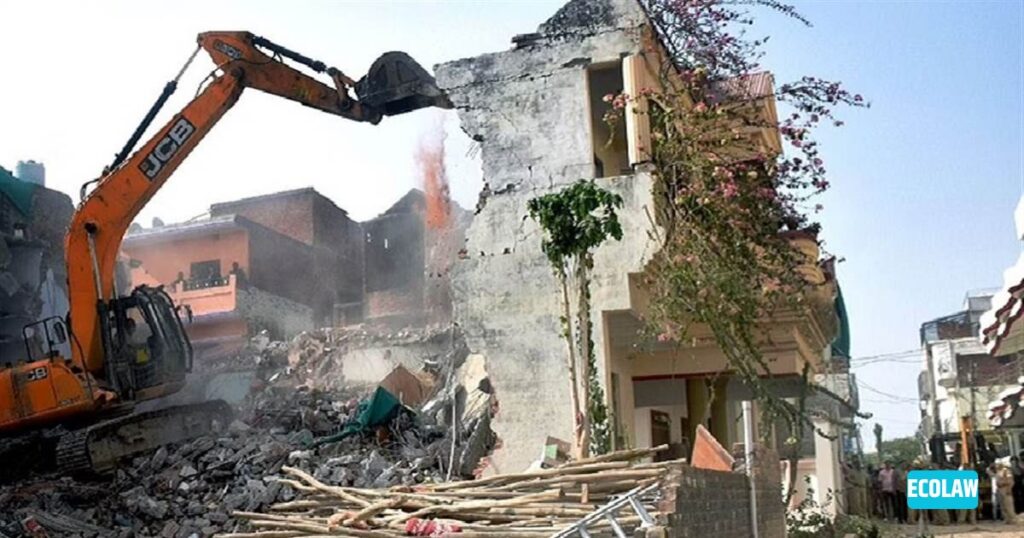In a powerful affirmation of constitutional rights, Chief Justice of India B. R. Gavai praised the Supreme Court’s decision to ban “bulldozer justice”—unilateral demolitions by the executive without due process. The ruling, which issued nationwide guidelines, reinforces the separation of powers and protects citizens’ homes from arbitrary destruction.
Background: What is ‘Bulldozer Justice’?

“Bulldozer justice” refers to the controversial practice of immediately demolishing properties of accused persons—often before legal proceedings—raising alarm over violations of the rule of law and targeting marginalized communities.
SC Ruling: Stopped Bulldozer Justice in Its Tracks
In November 2024, the Supreme Court—through a bench headed by Justice B.R. Gavai—issued sweeping pan-India guidelines to curb “instant bulldozer justice.” The ruling mandates:
- Prior notice (at least 15 days);
- Written legal grounds for demolition;
- Videography of the demolition;
- Strict conformity to legal process;
Violations of these norms may result in contempt penalties, including compensation from the officials responsible.
Recent Exception in Squatter Cases
In July 2025, the Supreme Court clarified that these protections do not apply to squatters—people living illegally on government-owned land, riverbanks, or near water bodies. In such cases, authorities can proceed with demolition without following the same stringent process.
CJI Gavai’s Remarks: Rule of Law Above All
Speaking at a felicitation event in Panaji, CJI Gavai expressed his satisfaction with the Court’s decision. He remarked how the SC ruled rightly to prevent the executive from acting as judge, reinforcing that in India, every person—accused or not—is entitled to due process and the rule of law. He emphasized that homes are not just structures but also shelters for families, and demolishing them without trial inflicts undue hardship on innocent residents.
Why This Matters
| Key Aspect | Significance |
|---|---|
| Rule of Law | Reinforces judicial control over punitive actions, preventing arbitrary state cruelty. |
| Protection of Shelter | Upholds right to shelter under Article 21 of the Constitution, extending even to the families of the accused. |
| Separation of Powers | Preserves the critical constitutional balance by preventing the executive from acting as judge and jury. |
| Precedent for Accountability | Establishes legal accountability for state officials if their actions violate SC guidelines. |
| Environmental Sensitivity | The same principles influence broader rulings (e.g. Kancha Gachibowli), where environmental rights override overnight demolitions. |
Recent Related Judgment
In a related environmental case, the Supreme Court ruled that deploying 30 bulldozers overnight to clear forested land in the name of “sustainable development” is unacceptable. CJI Gavai insisted that environmental protection cannot be compromised in the name of development.
Also Read: CJI Gavai to Law Students: “Exam Ranks Don’t Define Your Future
Conclusion
The SC’s guidelines against “bulldozer justice” and CJI Gavai’s robust support mark a defining moment for constitutional governance in India. It’s a sharp reminder: justice must be served—not bulldozed away.